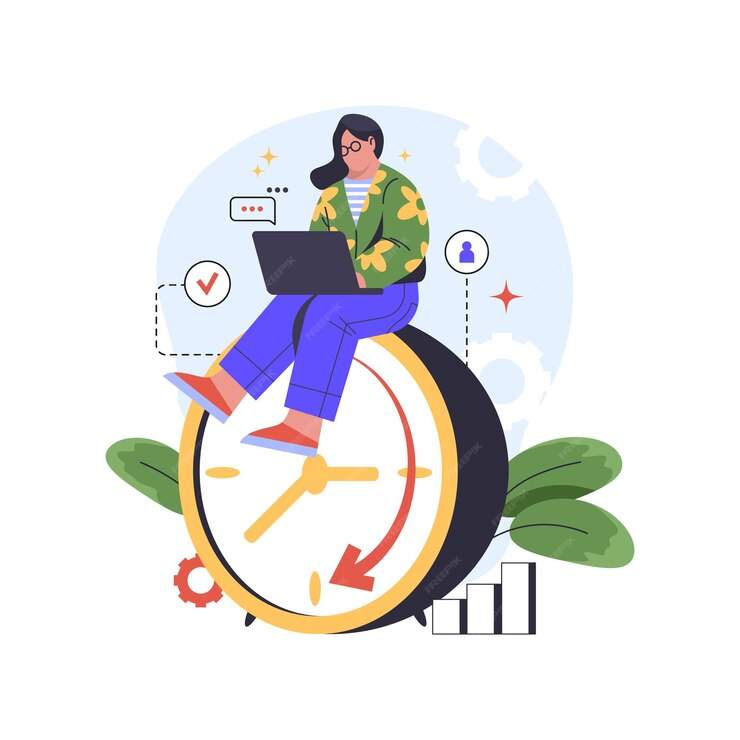Lessons From the Past to Shape the Future of Software Development
Time Traveling with DevOps
In the world of software development, progress is measured in leaps and bounds. Yet, sometimes, the fastest way forward is to take a step back and learn from the past. What if we could extract valuable insights from those days and apply them to the present and future with the power of DevOps?
While we can’t physically time travel, DevOps allows us to metaphorically bridge the past, present, and future of software development and uncover valuable lessons.
The Past
The Era of Wild West of Code
Imagine a time when there were no set rules or standardized ways of doing things, when developers roamed the digital frontier, writing code with little oversight or structure. It was a time of innovation but also chaos. It was a bit like the early days of settling in a new land, full of unknowns and surprises.
Now, think about being alongside one of those early software developers. They worked hard, often all by themselves, trying to create software without much help from others. Communication was tough, just like trying to send messages between faraway towns.
Back then, releasing new software was a rare and risky event. It was like explorers going on dangerous adventures into uncharted territory, never quite knowing what challenges they’d face along the way.
Then, the time when software development followed a strict sequential process, each phase (from requirements gathering to testing) was a separate island, and you couldn’t proceed to the next without completing the previous.
Lesson 1
So, what can we learn from this era? The lesson is patience. In our modern rush to release software at breakneck speeds, we often forget the value of taking the time to build a strong foundation. DevOps teaches us to balance speed with stability, ensuring that our code is robust and reliable before it takes its first steps.
Lesson 2
From this era, we also learn the value of discipline. DevOps instills a sense of responsibility, encouraging developers to take ownership of their code and operations teams to bring structure and automation. It’s like taming the wild west of code, ensuring that innovation is channeled into productive directions.
Lesson 3
We learn the importance of collaboration. Just as islands need bridges to connect them, so do development phases. DevOps encourages teams to work together seamlessly, breaking down silos and fostering communication. We apply this lesson to ensure that every stage of development flows smoothly into the next, like a river carving its path.
The Present
Here, we find a landscape where lessons from the past converge with modern practices. DevOps embodies the spirit of continuous improvement, where we apply the patience learned from the digital dinosaur age, the collaboration of the Waterfall era, and the discipline of cowboy programming.
DevOps emphasizes automation, integration, and communication among developers, operations teams, and other stakeholders. It’s now about building bridges between the islands of development phases, ensuring that innovation is harnessed, and code is both swift and stable. It’s a journey through time and an evolution of best practices. It’s as if we’ve built a network of interconnected roads, enabling seamless travel between once-isolated settlements.
This newfound efficiency contrasts sharply with the arduous journeys of the past.
The Future
DevOps, our time machine, has transported us to this promising future.
The key question becomes: What lessons can we glean from our time-traveling adventure with DevOps to ensure a brighter future for software development?
Lesson 1: Collaboration is Key
Looking back, we see that the isolation of early developers led to inefficiencies and hurdles. In the future, fostering a culture of collaboration, where developers, operations teams, and other stakeholders work harmoniously, will be paramount. Just as our time machine connects disparate eras, collaboration connects diverse teams to create cohesive software solutions.
Lesson 2: Automation is the Engine
Automation is the engine that powers our time machine. It’s clear that automating repetitive tasks not only accelerates development but also minimizes the risk of human error. In the future, embracing automation for testing, deployment, and infrastructure provisioning will be the norm, ensuring smoother journeys in the software development landscape.
Lesson 3: Continuous Learning and Adaptation
Our time-traveling journey underscores the importance of learning from the past and adapting to new landscapes. In the future, organizations must invest in continuous learning and adaptability. Just as our time machine navigates different time periods, software teams must navigate evolving technologies and user demands.
While we can’t physically travel through time, DevOps equips us with the tools and mindset to learn from the past and shape a more efficient, collaborative, and automated future for software development.
